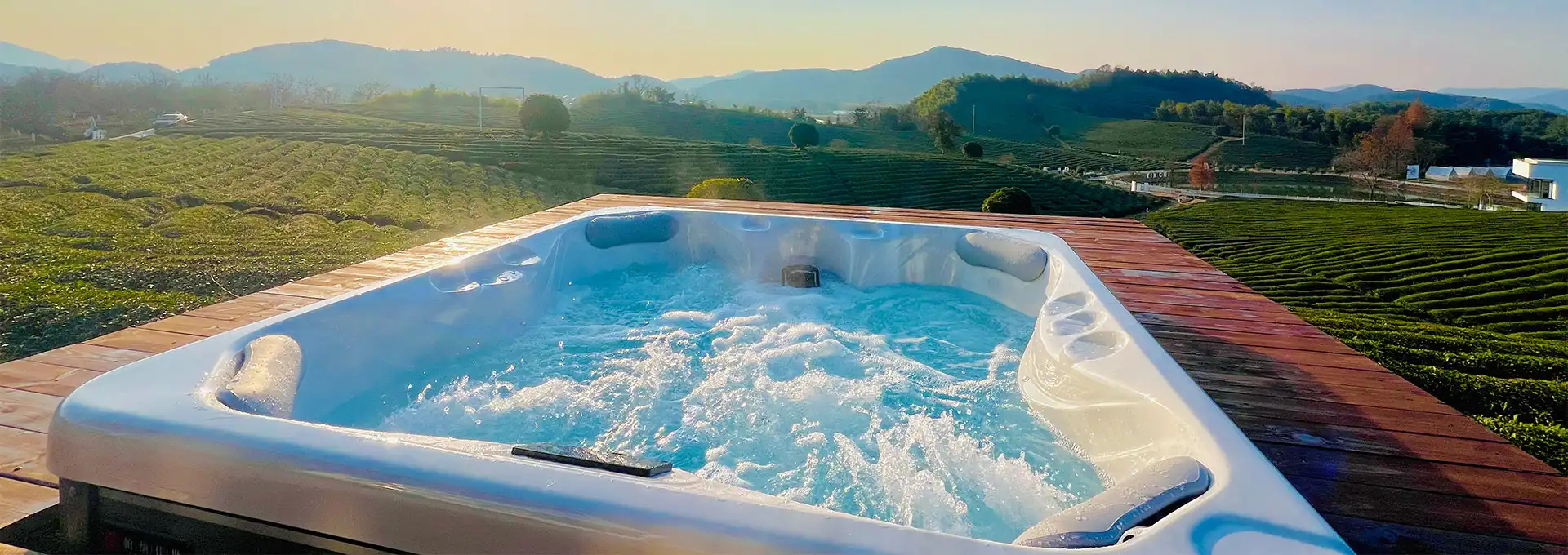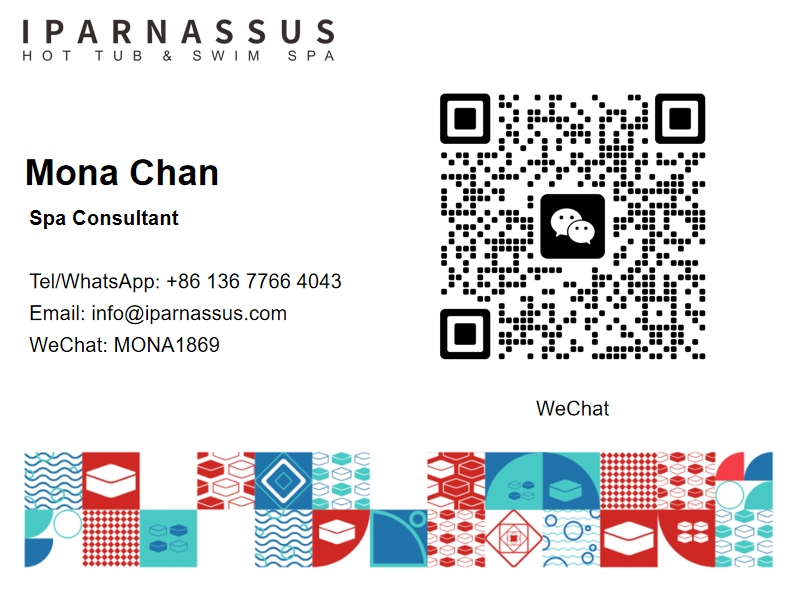Diving Deep into the Concerns of Hospitality Hot Tubs in the Middle East: What Do Clients Really Want to Know?
2024-11-04 17:59:24
The luxury hospitality sector in the Middle East has undergone a remarkable transformation in recent years, with hot tubs emerging as a defining feature of premium guest experiences. This evolution reflects the region's growing emphasis on providing world-class amenities that cater to both local and international visitors. From the opulent hotels of Dubai to the serene desert resorts of Saudi Arabia, the demand for sophisticated hot tub solutions continues to rise, bringing with it a unique set of challenges and requirements that demand careful consideration. The integration of hot tubs into Middle Eastern hospitality settings represents not just a luxury addition but a complex interplay of technical innovation, cultural sensitivity, and operational excellence that must be carefully balanced to ensure success in this competitive market.
As a leading solution provider in this specialized market, Shenzhen Iparnassus Intelligent Spas Co., LTD specializes in resort hot tubs and infinity pool spa systems. Our hot tubs are equipped with circulation filtration and sterilization systems that reduce the need for frequent water changes. With professional design, R&D, production, sales, and after-sales service teams, we have obtained more than 30 patents as of 2023. The iParnassus® brand business covers dozens of countries and regions globally. For Middle East hotel bulk purchase cooperation plans, we offer: 1. Free customization mold support; 2. Free control system upgrade with hotel centralized management system; 3. Direct cooperation with top manufacturers, providing direct benefits to hotels; 4. North American materials and standards at competitive prices. Contact info@iparnassus.com for more information about our high-end quality products and reliable after-sales service, which are exported to more than 20 countries worldwide.
What Are the Key Water Management Challenges for Hot Tubs in Middle Eastern Hotels?
The distinctive environmental conditions of the Middle East present a complex array of challenges for hot tub maintenance and operation that go far beyond typical considerations in other regions. The fundamental issue of water scarcity in the Middle East is compounded by specific water quality challenges that can significantly impact the performance and longevity of hot tub systems. Traditional approaches to hot tub maintenance, which often rely on frequent water changes, become particularly problematic in this context, not only from a cost perspective but also from an environmental sustainability standpoint. The region's water supplies typically contain high levels of minerals and other dissolved solids, which can lead to accelerated scale formation in pipes and equipment, necessitating more frequent maintenance interventions and potentially shortening the lifespan of key components. This situation is further complicated by the extreme temperature variations common in the region, which can affect water chemistry stability and equipment performance in ways that require specialized management approaches.
The implementation of advanced water management solutions has become increasingly crucial in addressing these regional challenges. Modern filtration systems incorporating multiple stages of treatment, including mechanical filtration, chemical treatment, and UV sterilization, have demonstrated remarkable effectiveness in extending water life while maintaining optimal quality standards. These sophisticated systems can achieve water consumption reductions of up to 75% compared to conventional approaches, representing a significant advancement in both operational efficiency and environmental responsibility. The integration of smart monitoring technologies has further enhanced the ability to maintain optimal water quality while minimizing resource consumption, with real-time adjustments and predictive maintenance capabilities helping to prevent issues before they develop into significant problems.
How Do Hot Tub Safety Standards Align with Middle Eastern Hospitality Requirements?
The intersection of safety standards and cultural requirements in Middle Eastern hospitality settings presents a unique challenge that requires careful consideration of multiple factors. Modern hot tub installations must incorporate comprehensive safety systems that address not only universal safety concerns but also specific cultural and regulatory requirements unique to the region. Temperature management systems must be particularly sophisticated, incorporating multiple layers of monitoring and control to ensure safe operation in a climate where external temperatures can fluctuate dramatically. These systems typically include redundant temperature monitoring, automated shutdown protocols, and advanced user interface features that provide clear information in multiple languages. The integration of these safety features must be accomplished while maintaining the luxury experience expected by guests, requiring a delicate balance between security and comfort.
The maintenance of proper hygiene standards in hot tub facilities has taken on new importance in recent years, with increased attention to public health concerns driving the development of more sophisticated sanitization systems. Modern installations typically incorporate automated chemical management systems that continuously monitor and adjust water chemistry parameters, ensuring optimal sanitization levels while preventing the potential for chemical imbalances that could affect guest comfort or safety. These systems are often integrated with broader property management platforms, allowing for comprehensive monitoring and documentation of maintenance procedures. The cultural considerations that must be addressed in Middle Eastern hospitality settings add another layer of complexity to safety system design, requiring careful attention to privacy features, appropriate signage, and operational protocols that respect local customs and traditions.
What Features Should Hotels Look for in Hot Tub Systems for Maximum Guest Satisfaction?
The selection of appropriate hot tub systems for Middle Eastern hotels requires careful consideration of multiple factors that contribute to guest satisfaction while addressing operational efficiency and environmental responsibility. Advanced comfort features have become increasingly sophisticated, with modern systems incorporating multiple zones of hydrotherapy jets, advanced ergonomic designs, and customizable pressure controls that allow guests to personalize their experience. These comfort features must be balanced with practical considerations of maintenance and durability, particularly given the challenging environmental conditions common in the region. The integration of smart control systems has become increasingly important, allowing for both enhanced guest experience and improved operational efficiency through features such as remote diagnostics, automated maintenance scheduling, and integration with property management systems.
The importance of energy efficiency in hot tub system design cannot be overstated, particularly in a region where environmental conditions can place significant demands on heating and cooling systems. Modern installations typically incorporate multiple layers of energy-saving features, including advanced insulation systems, smart heating controls, and energy-efficient pump designs that can significantly reduce operational costs while maintaining optimal performance. The durability of system components has also become a crucial consideration, with manufacturers developing specialized materials and designs that can withstand the harsh environmental conditions common in the Middle East while maintaining aesthetic appeal and functional performance. Recent data indicates that hotels implementing these advanced systems have seen significant improvements in both operational efficiency and guest satisfaction metrics, with some properties reporting reductions in energy consumption of up to 40% while maintaining or improving guest experience ratings.
The introduction of advanced technology features has revolutionized the way hotels manage and maintain their hot tub facilities, with integrated control systems providing unprecedented levels of monitoring and control capability. These systems typically incorporate mobile app interfaces, automated maintenance alerts, and comprehensive usage tracking capabilities that allow properties to optimize their operations while ensuring consistent guest satisfaction. The economic benefits of implementing these advanced systems have been well-documented, with properties reporting significant reductions in operational costs alongside improvements in guest satisfaction scores and repeat booking rates. The ability to monitor and adjust system parameters remotely has proven particularly valuable in maintaining optimal performance while minimizing staffing requirements and reducing response times to potential issues.
Industry research indicates that hotels with well-maintained hot tub facilities consistently achieve higher guest satisfaction scores and increased repeat booking rates, with some properties reporting improvements of up to 20% in room revenue for units featuring premium hot tub installations. The successful implementation of hot tub facilities in Middle Eastern hotels requires a careful balance of technical capability, cultural sensitivity, and operational efficiency, with the most successful installations incorporating advanced features that address both guest comfort and operational requirements while remaining environmentally responsible and cost-effective.
For more information on hot tub installations and our products, please feel free to contact us at info@iparnassus.com.
References:
1. International Journal of Hospitality Management (2023). "Water Management in Middle Eastern Hotels: Challenges and Solutions"
2. Journal of Sustainable Tourism (2023). "Environmental Impact of Luxury Amenities in Desert Regions"
3. Middle East Hospitality Review (2024). "Guest Preferences in Luxury Hotel Amenities"
4. International Standards Organization. "ISO 17680:2015 - Thalassotherapy - Service requirements"
5. Global Hotel Technology Review (2023). "Smart Integration in Hotel Amenities"
Send Inquiry
Related Industry Knowledge
- How Much Electricity Does a Hot Tub Use?
- How to Clean Swim Spa?
- What Do You Need to Install a Swim Spa?
- Can You Use Baking Soda in Your Swim Spa?
- How to Build a Base for a 6 Person Swim Spa?
- How to control ph in a spa?
- How Much Is A Swim Spa Hot Tub Combo?
- How to Change the Swim Spa Main Pump?
- Can You Run a Hot Tub Without a Filter?
- Does Swim Spa Come with Its Own Water Heater?



